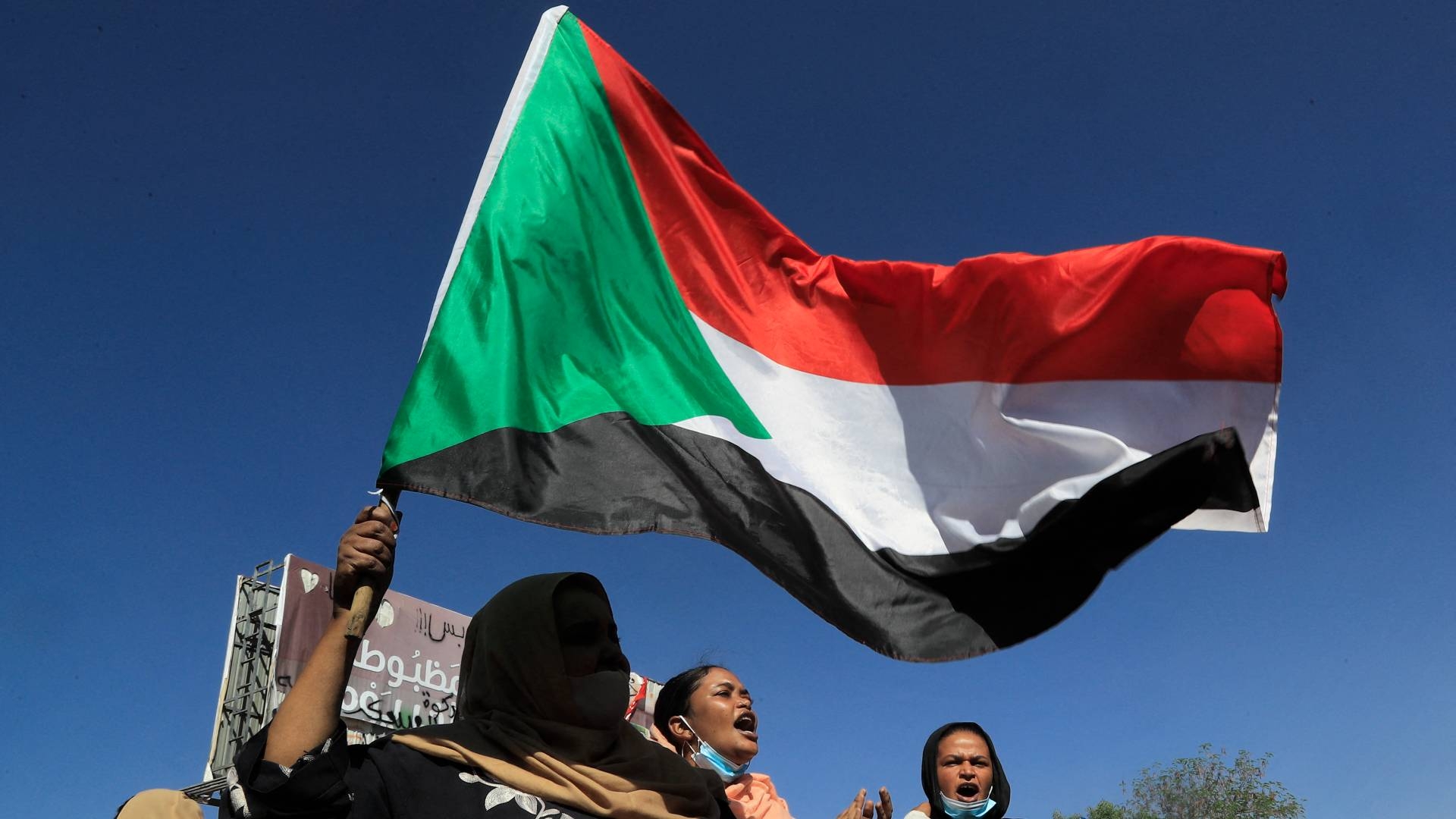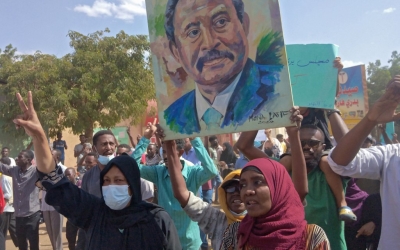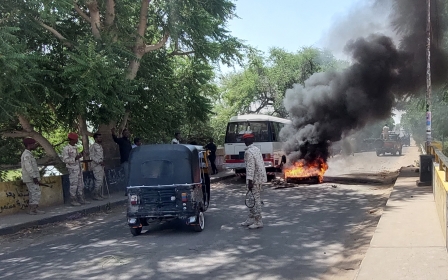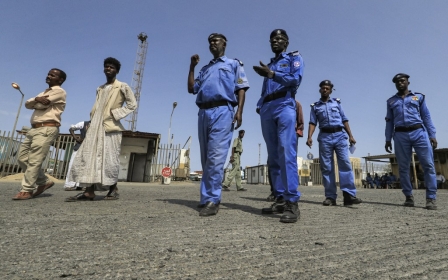Sudan coup: US lawmakers call for sanctions on military leaders

A bipartisan group of US lawmakers have introduced legislation aimed at imposing sanctions on Sudan's military leaders, as pro-democracy protests continue on the streets of the country's capital Khartoum in opposition to October's military coup.
If passed, the bill, titled, the Sudan Democracy Act, would require US President Joe Biden to introduce sanctions against any individual that has been deemed responsible for the power grab.
It would also sanction any individual responsible for the arbitrary detention of Sudanese nationals, for blocking internet communication channels or medical access in the country.
The legislation was introduced by Congresswoman Young Kim and Congressman Dean Phillips, two members of the House Foreign Affairs subcommittee on Africa, as well as Michael McCaul, a ranking member of the House Foreign Affairs Committee.
"I'm proud to help take concrete steps to show support for the brave people of Sudan as they peacefully protest for democracy and hold those responsible for undermining Sudan’s civilian-led democratic transition accountable by introducing the Sudan Democracy Act," Kim said in a statement.
New MEE newsletter: Jerusalem Dispatch
Sign up to get the latest insights and analysis on Israel-Palestine, alongside Turkey Unpacked and other MEE newsletters
Phillips condemned the coup and said that it "undermines important progress the Sudanese people have made towards installing a civilian-led government".
"We must do everything in our power as a nation to support the democratic aspirations of the people of Sudan and stand up for human rights, good governance and diplomacy, at home and abroad," the congressman said.
Protests have raged since the military, led by General Abdel Fattah al-Burhan, seized power and detained Prime Minister Abdalla Hamdok on 25 October - upending two years of a democratic transition aimed at realising civilian rule in the country.
Following international condemnation and widescale protests, Burhan reinstated the premier in a 21 November deal with Hamdok.
Critics, however, lambasted that agreement as "whitewashing" and accused Hamdok of "betrayal", as pro-democracy activists vowed to maintain pressure on the military-civilian authority.
In the month since the coup, authorities have arrested dissidents, restricted internet coverage and killed at least 42 civilians, while wounding hundreds more.
The legislation in Congress comes several weeks after a similar bill was introduced in the Senate by Chris Coons.
After the coup took place, the US quickly moved to pause $700m in emergency assistance to Sudan but has yet to announce whether it will issue sanctions on members of the Sudanese military.
Cameron Hudson, a fellow at the Atlantic Council and former US diplomat, previously told Middle East Eye that targeted US sanctions would not negatively affect Sudanese citizens.
"The point is to target pressure on the military and impose a high cost on them personally for their actions, not on the Sudanese people," he said.
Middle East Eye delivers independent and unrivalled coverage and analysis of the Middle East, North Africa and beyond. To learn more about republishing this content and the associated fees, please fill out this form. More about MEE can be found here.





